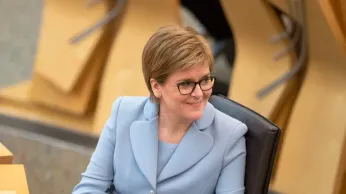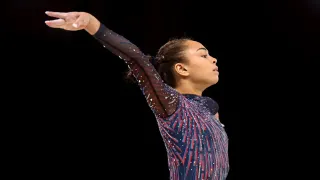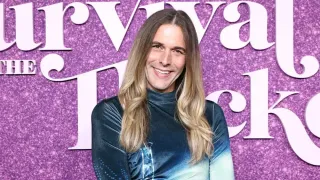
2 hours ago
Nicola Sturgeon Says Her Sexuality “Isn’t Binary” Ahead of ITV Interview and Memoir Release
READ TIME: 3 MIN.
Scotland’s former first minister Nicola Sturgeon has said her sexuality “isn’t binary,” a statement highlighted in advance coverage of her forthcoming memoir and set to be discussed in a broadcast interview airing on ITV on August 11. The comment appears as part of a broader reflection on her public and private life, including her time leading Scotland from 2014 to 2023.
In excerpts and reporting around the book, Sturgeon addresses and rejects persistent online rumors about her private life, while underscoring that sexual orientation is personal. She is quoted as saying she has “never considered sexuality, my own included, to be binary,” adding that sexual relationships should remain private matters.
Coverage by The Scotsman and Sky News corroborates the framing of her remarks, noting that Sturgeon discussed her sexuality in the context of false allegations previously circulated online. Both outlets report that she emphasized the non-binary nature of sexuality, while pointing to the longevity of her relationships with men and her preference to keep intimate life private.
The remarks come as Sturgeon prepares to launch her memoir, titled “Frankly,” which recounts her journey from working-class Ayrshire to leadership at Bute House and reflects on major public milestones and personal experiences. Media reports indicate the book is scheduled for publication in mid-August and is the basis for her in-depth ITV interview.
Sturgeon’s tenure is widely associated with advancing LGBTQ+ equality in Scotland, including being in office when the Scottish Parliament voted to legalize same-sex marriage in 2014 and later pursuing reforms to simplify the process of legal gender recognition—measures that became a focal point of UK-wide debate after being blocked by the UK government. Reporting notes that she has consistently characterized herself as an ally to LGBTQ+ communities throughout her political career.
Her decision to address the non-binary nature of sexuality publicly is resonating with LGBTQ+ audiences and advocates who stress that experiences of sexuality and attraction can be fluid and do not necessarily fit into fixed categories. While Sturgeon’s statement centers her personal perspective, it aligns with broader LGBTQ+ understandings that reject rigid binaries and affirm a spectrum of identities and orientations. Reporting emphasizes that she sought to reframe the conversation away from rumor and toward a respectful recognition of privacy and complexity.
The ITV interview, billed as a broadcast exclusive, is scheduled to air on ITV1, STV, and ITVX at 7 p.m. on August 11, offering Sturgeon an opportunity to speak in her own words about her life and leadership, and to expand on themes explored in her book. According to ITV’s program description, the conversation addresses both her public record and personal narrative, including her reflections on the intense scrutiny accompanying high office.
Media outlets also note that Sturgeon’s memoir revisits other deeply personal chapters, including a miscarriage in 2010 and the emotional impact of a long-running police investigation related to party finances—events she describes as profoundly challenging. Sky News’ reporting quotes her characterization of the investigation as akin to “mental torture,” while underscoring her stated respect for the justice system and her relief that no further action would be taken. These experiences form part of the backdrop against which she discusses identity, privacy, and resilience.
For LGBTQ+ communities, Sturgeon’s articulation that her sexuality is not binary contributes to ongoing visibility of diverse lived experiences, particularly from high-profile figures whose words can shape public understanding. While the former first minister underscores that sexuality is ultimately a private matter, her acknowledgement may help normalize discussions of fluidity and privacy, reinforcing that people’s identities do not need to fit predetermined labels to be valid or respected.
As her book reaches readers and the ITV interview airs, attention is likely to focus on the broader implications of her comments: a public figure’s effort to claim privacy while affirming that sexuality can be complex and non-binary. In a political climate where LGBTQ+ rights, including transgender people’s rights to legal recognition and dignity, remain contested in the UK and elsewhere, Sturgeon’s remarks arrive as both a personal disclosure and a reminder of the spectrum of human experience.






